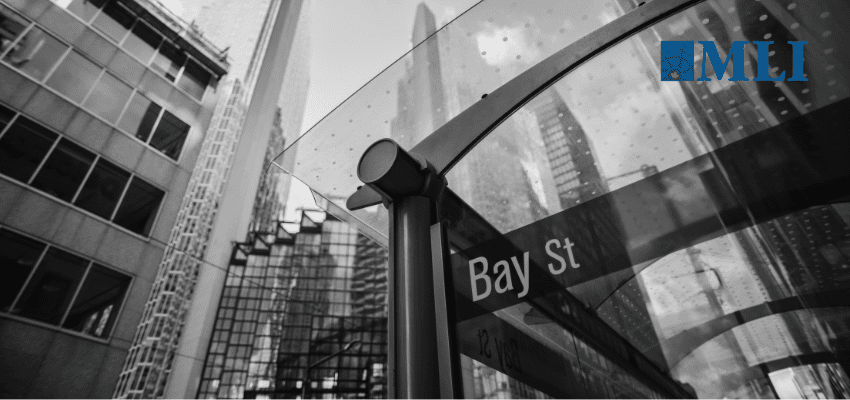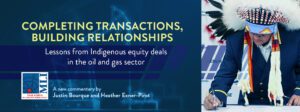This article originally appeared in the Globe and Mail.
By Christian Leuprecht and Joe Adam George, November 14, 2024
“War is a matter not so much of arms as of money,” according to ancient Greek historian Thucydides. Indeed, the gruelling year-long, multifront counteroffensive is costing Israel’s economy $260-million – a day.
The other side deals with a similar problem, which is compounded by the fact that Hamas has impoverished Gaza. Yet, until recently, Hamas seemingly had no shortage of cash.
Sophisticated terror operations such as the Oct. 7 attacks are costly. So is sustaining Hamas’ protracted insurgency. Both Hamas and Hezbollah enjoy state-based backing; receiving an estimated $100-million and $700-million a year, respectively, from Iran. And how does Hamas raise the balance of its estimated $1-billion a year in foreign revenue?
Hamas’ and Hezbollah’s financial tentacles span the globe and reach deep into Canada.
Canada’s outsized problem with dirty money has been well-documented for decades. During a 1998 Senate committee hearing, Ward Elcock, former director of the Canadian Security Intelligence Service (CSIS), testified on terrorist organizations raising funds in Canada. Mr. Elcock bluntly warned that Canada “cannot become, through inaction or otherwise, what might be called an unofficial state sponsor of terrorism.”
A weak national security posture, failure to enforce, and under-resourced and overstretched intelligence agencies have made Canada safe for terrorists. A 2006 Fraser Institute report estimated terror financing in Canada at $180-million annually.
Various law enforcement bodies have laid out a litany of accusations: Hezbollah uses Canada to launder billions in transnational narcoterrorism. It colludes with Chinese triads and Mexican cartels to fund extremist violence, including by way of the now-defunct Lebanese Canadian Bank, which denied wrongdoing but later reached a settlement with U.S. authorities. Having been active in Canada since the 1990s, Hezbollah is “primarily involved in logistics and operational support activities and fundraising” such as underground banking, car theft, immigration fraud, weapons smuggling and procuring dual-use equipment.
Last year, the Cameron Ortis trial revealed how a major Hezbollah financier allegedly liaised with Middle Eastern organized crime groups operating in Canadian cities to bankroll billions. Canadian nationals and underground currency exchanges have reportedly been laundering funds for terrorist financing operations of both Hezbollah and Hamas.
Following the Oct. 7 attacks, Hamas has taken advantage of compliance-related loopholes and poor counterterror financing practices to fundraise through established and emerging online financial platforms to fund its insurgency in the Gaza Strip. Hamas leverages donations from western charities via cash couriers, front companies, bank transfers, hawala networks and popular money transfer services.
In 2021, a Canada Revenue Agency (CRA) audit alleged that the Muslim Association of Canada (MAC), one of the largest Muslim charities in the country, was involved with “an apparent Hamas network.” (MAC countered by accusing CRA of “systemic Islamophobia.”) The end-use of resources is notoriously difficult to untangle. Hamas and Hezbollah use social service organizations to obfuscate the purpose for which resources are raised.
Illicit financing goals are also not limited to supporting acts of violence directly. According to Haras Rafiq, a British security expert, foreign adversaries have been funneling money into Canada and laundering it to promote Islamism, an extremist religio-political ideology that advocates for Sharia law and the destruction of Israel.
Yet, Canada has been slow to act on terrorist financing: long overdue reforms of Canada’s Proceeds of Crime (Money Laundering) and Terrorist Financing Act (PCMLTFA) have not been a priority for the Trudeau government, which voted down an anti-money laundering bill last year.
Canadians disturbed by the calamity unfolding across the Near East may do well to look closer to home. In its criminal indictment of TD Bank, the United States Treasury recently determined that the ledgers and transactions of Canada’s financial system have been actively enabling extremist violence.
The continuing periodic review of the PCMLTFA provides an opportunity for the federal government to atone for past sins: disrupt the flow of terror money, forfeit civil assets that resource terror and bolster the reputational damage to the integrity of Canada’s financial system. Failing to address Canada’s complicity in funding global terrorism bears a great risk to Canadian prosperity.
The economic consequences of grey-listing in the upcoming Financial Action Task Force country review would be debilitating and depress Canada’s GDP by up to 10 per cent. When will the government make good on its integrated plan to combat money laundering and terrorist financing, announced in Budget 2019? The federal government’s intransigence effectively makes Canada complicit in nurturing and exporting terrorism it purports to denounce.
Christian Leuprecht is co-editor of Dirty Money: Financial Crime in Canada, professor at the Royal Military College and Queen’s University, and senior fellow at the Macdonald-Laurier Institute.
Joe Adam George is a national security analyst and contributing writer with the Macdonald-Laurier Institute.







